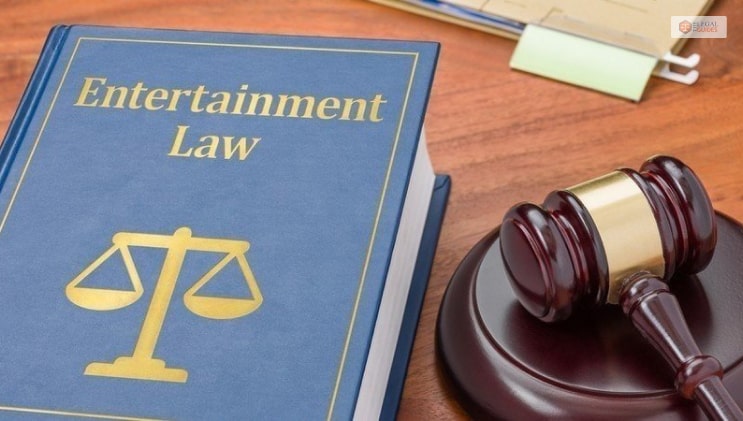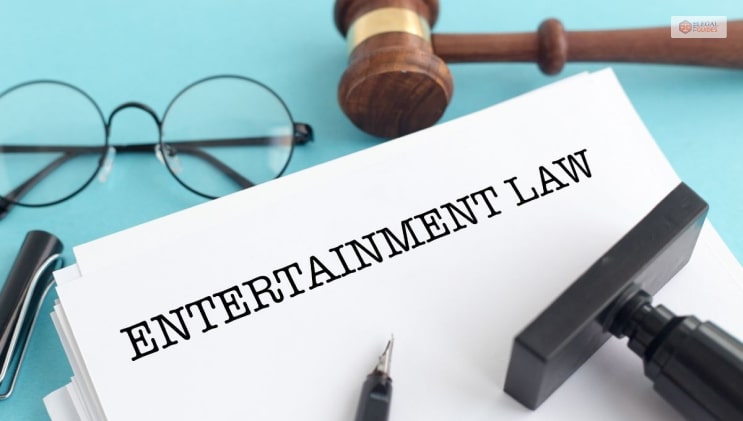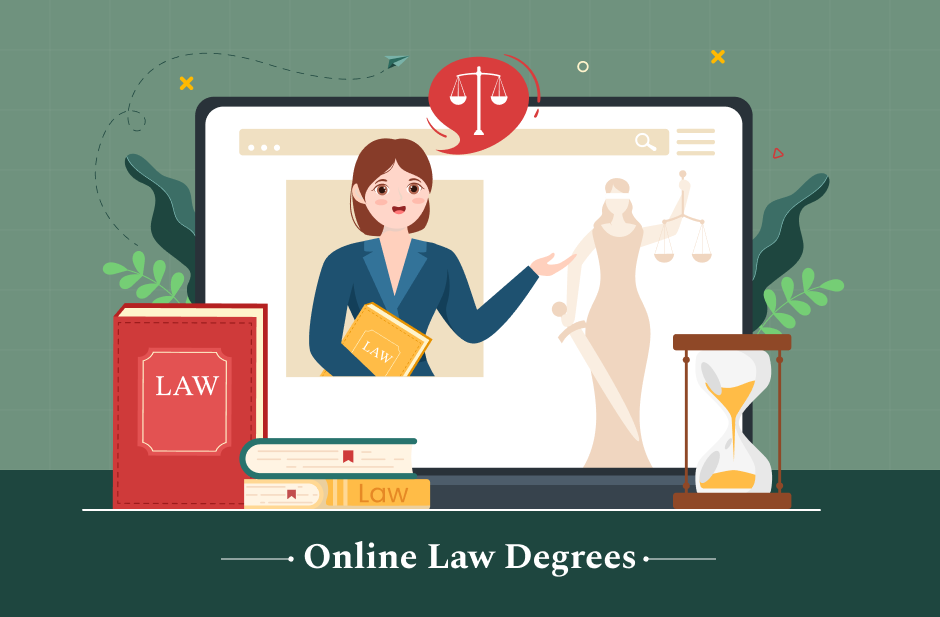Are you dreaming of combining your law career with a dash of entertainment? Do you want to look after the intricacies of the entertainment industry and pursue it in your law career? Well, do not worry. This blog will help you out with entertainment law and how lawyers, thus create and negotiate contracts for musicians or actors to safeguard their intellectual property.
Furthermore, this blog will also help you out by telling you whether this career is worth it to pursue or not. We guarantee you, in the end, you’ll already have a decision about pursuing this career or not.
What Is Entertainment Law?

It is a subpart of intellectual property encompassing legal issues related to the entertainment industry. Film, television, music, theater, sports, gaming, and new media fall under the niche of entertainment law. Lawyers in this field offer legal services to companies, individuals, and organizations who are creating entertainment content. The attorneys prevent any kind of exploitation of entertainment content.
Entertainment lawyers primarily deal with contract negotiation, protecting intellectual property, licensing agreements, talent representation, and other defamation privacy issues. They deal with actors, musicians, filmmakers, producers, agents, record labels, studios, broadcasters, distributors, and content creators on a daily basis to navigate through different complex legal issues to maximize their rights and opportunities in the entertainment business.
In entertainment law, while practicing it, you must have a deep understanding of legal principles and industry practices to foster strong negotiation, problem-solving, and communication. The laws that play the primary role in this field are music law, television law, and digital media law. As an entertainment lawyer, you have to have tailored expertise to the unique needs and challenges presented to the clients in the ever-evolving landscape of the entertainment industry.
Functions And Role Played By An Entertainment Lawyer

You might be thinking what does an entertainment lawyer do that’s so different from others? Well sorry to burst your bubble, they do not do anything different from your regular lawyer. Let’s see what they do:
Contract Negotiation
These lawyers draft contracts and negotiate with the opposing party on behalf of their clients. They safeguard their client’s rights where they are represented lawfully and their rights are safeguarded.
Intellectual Property Protection
In this case, these entertainment lawyers advise their clients on ways to safeguard their copyrights or trademarks. Sometimes, on behalf of their clients, they protect their creative works and enforce legal rights against any sort of infringement.
Clearing Rights
Your entertainment lawyer would conduct due diligence so that your rights are cleared from third-party content like music, films, or shows. They ensure their clients have the rights to their used copyrighted materials without infringing other’s rights.
Talent Representation
In this case, these attorneys represent people belonging to the creative field like actors, writers, musicians etc. They protect your interests and negotiate favorable deals for your benefit. Moreover, you can confer with your entertainment lawyer in case you’re looking for career development.
Corporate Matters
In this case, your lawyer will advise you on different corporate matters like mergers and acquisitions and entity formulation. Your lawyer would structure the overall business venture and ensure that all your procedures are aligned with the US legal framework.
Dispute Resolution
Suppose there are claims of copyright infringement claims against you. Or you’re facing a defamation lawsuit. In that case, your entertainment lawyer would resolve your disputes efficiently to protect you from any harm.
Compliance
In this case, your attorney complies with you with any legal regulatory framework in the entertainment industry or even in advertising regulations.
Process Of Becoming An Entertainment Lawyer In The US

To become an entertainment lawyer in the US, there are several key aspects you need to keep in mind before becoming an entertainment lawyer. Here is an overview of the process:
Obtain a Law Degree
Stating the obvious, you must obtain a Juris Doctor (JD) degree from an accredited law school. However, to be admitted to the law school will require you to hold a bachelor’s degree in law. Your admission will depend on your competitive LSAT score. While in law school you can choose your specialization in entertainment law, intellectual property law, and business law.
Gain Legal Experience
Needless to say, once you get your law degree, it’s time you gain some legal experience. So, take up internships in law firms that deal with entertainment law. Look for seniors practice under who are well-equipped with the legal intricacies of entertainment law. This experience will help you develop legal knowledge, practical skills, and industry insights.
Build a Professional Network
Needless to say, once you’ve done your internship gathered experience in entertainment law, and are ready to start your individual practice, it’s time you build a professional network. Associate with people from the Entertainment Law Section of the American Bar Association. Establish connections even with prospective clients belonging to the entertainment industry, including producers agents, managers, artists, and executives.
Obtaining a License and Certification
So now you’re thinking about the obvious next step, isn’t it? How to establish your practice. Well, not to worry, you can start by obtaining the license and certification once you pass the bar exam. Once you have obtained the license, it’s time for you to specialize in entertainment law with different certificate programs to bring out your finesse in the subject.
Professional Development
As an entertainment lawyer, you should stay abreast of developments in your specific field. You can continue doing CLE programs and other professional development seminars and industry programs. This, in turn, would allow you to give top-notch legal services to your clients.
Tips To Become A Successful Entertainment Lawyer

Becoming a successful entertainment lawyer is only possible if you have an ample amount of legal expertise, industry knowledge, networking skills, and of course a passion to work for entertainment. Here are some tips that would make you a pro in this industry.
Specialize and Gaining Expertise
Make entertainment law your focal point of legal practice and develop expertise in areas of film, television, music, sports, etc. Stay updated with the newest developments in the entertainment industry, its legal trends, and the technology used to advance the field.
Building a Strong Legal Foundation
You can only practice further in entertainment once you obtain a JF degree from an accredited ited law school and excel academically. Take relevant courses on entertainment law, intellectual property law, contract law, and business law. Pursue internships, externships, and clerkships in entertainment law to gain practical experience.
Building a Professional Network
Cultivate relationships with different industry professionals, including producers, managers, artists, executives, and other fellow entertainment lawyers. Attend different industry events, webinars, seminars, and networking mixers and expand your overall professional network. Stay connected with the key players in this field.
Develop Negotiation Skills
You might not have to visit court regularly, but it’s imperative that you develop negotiation skills at its finest. This will help you negotiate favorable deals on behalf of your clients. Understand the business alongside its creative aspects of entertainment and strive to achieve beneficial outcomes for both you and your clients.
Versatility
Since entertainment is evolving with the changing tastes of the people, you also have to stay updated with the industry trends. Always welcome new challenges and opportunities to better yourself in the field. Be proactive in seeking out new clients, projects, and practice areas in your field.
Ethical Standards
Uphold high ethical standards and professionalism in your legal professional development. Adhere to the mandates based on professional conduct, maintaining client confidentiality, and always acting in the best interest of your clients.
Learning & Growing
Since this is an always developing industry, always commit to lifelong learning and professional development. Stay informed about the changes taking place in the field of entertainment law and always opt for CLE programs.
Exceptional Client Service
Always focus on providing the best client service and building a strong trust-based relationship with them. Understanding and listening to their needs, and establishing effective communication will deliver the best result that will exceed not only yours but their experience as well.
Resiliency & Persistency
Success in entertainment law often comes with persistent and resilient behavior in the field. Always face all the challenges and setbacks no matter what. Stay focused on your goals, have a positive attitude, keep pushing forward and that’s it, you’re there! Riding the ladder of success.
Salary And Job Outlook Of Entertainment Lawyers

The base salary of an entertainment lawyer starts from $85,000. However, when you combine the total pay with the bonus, they earn up to $121,000 in a year on average.
Final Thoughts!
So, it’s a wrap! There you have it, all you have to know about entertainment law and whether it’s a feasible profession or not. Did you come to a decision? Even if you haven’t and have something else to add to us, let us know.
Due to this, becoming an entertainment lawyer in America can lead to the development of a successful career.
Read More:
















